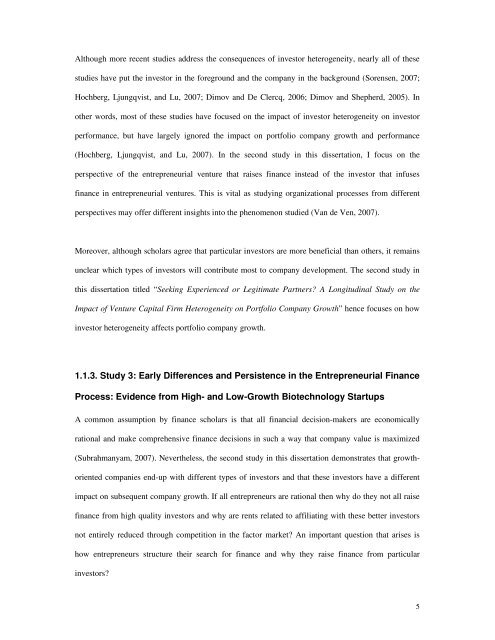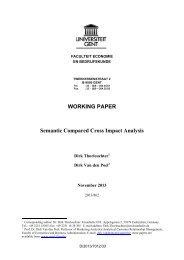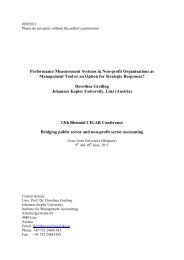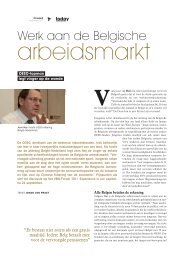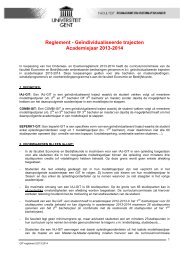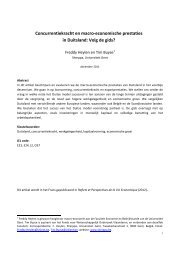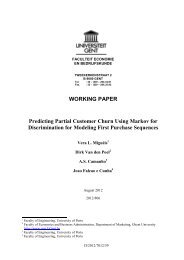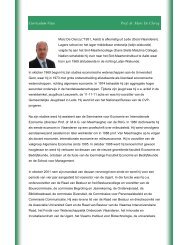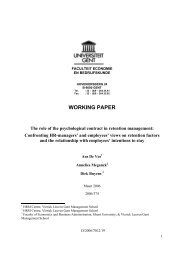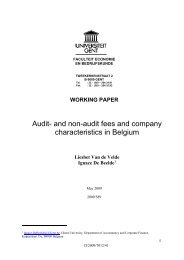Financing Unquoted High-Growth Companies: From Extending
Financing Unquoted High-Growth Companies: From Extending
Financing Unquoted High-Growth Companies: From Extending
Create successful ePaper yourself
Turn your PDF publications into a flip-book with our unique Google optimized e-Paper software.
Although more recent studies address the consequences of investor heterogeneity, nearly all of these<br />
studies have put the investor in the foreground and the company in the background (Sorensen, 2007;<br />
Hochberg, Ljungqvist, and Lu, 2007; Dimov and De Clercq, 2006; Dimov and Shepherd, 2005). In<br />
other words, most of these studies have focused on the impact of investor heterogeneity on investor<br />
performance, but have largely ignored the impact on portfolio company growth and performance<br />
(Hochberg, Ljungqvist, and Lu, 2007). In the second study in this dissertation, I focus on the<br />
perspective of the entrepreneurial venture that raises finance instead of the investor that infuses<br />
finance in entrepreneurial ventures. This is vital as studying organizational processes from different<br />
perspectives may offer different insights into the phenomenon studied (Van de Ven, 2007).<br />
Moreover, although scholars agree that particular investors are more beneficial than others, it remains<br />
unclear which types of investors will contribute most to company development. The second study in<br />
this dissertation titled “Seeking Experienced or Legitimate Partners? A Longitudinal Study on the<br />
Impact of Venture Capital Firm Heterogeneity on Portfolio Company <strong>Growth</strong>” hence focuses on how<br />
investor heterogeneity affects portfolio company growth.<br />
1.1.3. Study 3: Early Differences and Persistence in the Entrepreneurial Finance<br />
Process: Evidence from <strong>High</strong>- and Low-<strong>Growth</strong> Biotechnology Startups<br />
A common assumption by finance scholars is that all financial decision-makers are economically<br />
rational and make comprehensive finance decisions in such a way that company value is maximized<br />
(Subrahmanyam, 2007). Nevertheless, the second study in this dissertation demonstrates that growth-<br />
oriented companies end-up with different types of investors and that these investors have a different<br />
impact on subsequent company growth. If all entrepreneurs are rational then why do they not all raise<br />
finance from high quality investors and why are rents related to affiliating with these better investors<br />
not entirely reduced through competition in the factor market? An important question that arises is<br />
how entrepreneurs structure their search for finance and why they raise finance from particular<br />
investors?<br />
5


